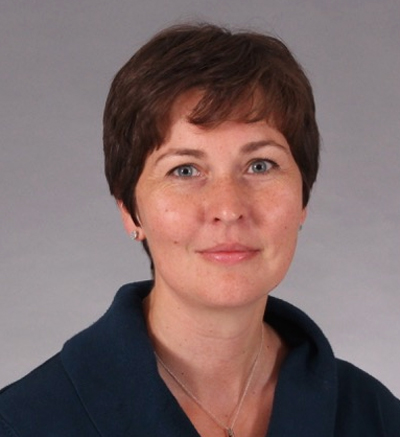S.E. (Sarah) Wolfe, Ph.D.
As of January 2022, I am a Professor in the School of Environment and Sustainability (SES) at Royal Roads University. Between 2009-2021, I was an Assistant and then Associate Professor in the School of Environment, Resources and Sustainability (SERS) at the University of Waterloo. My Post Doctoral research was completed in SERS at the University of Waterloo. My PhD (2007) is from the University of Guelph’s Department of Geography, MA from the University of Toronto’s collaborative program in Political Science and Environmental Studies, and a BA from the University of Guelph’s International Development program (Biophysical Environment). As part of my undergraduate program, I studied at the University of Haifa through their English-language program.
Below, you will find the description of my research program as it has evolved over time. There are three key points to keep in mind as you read the academic bumpf:
First, I’m a ‘water person’ to the core. I’ve been fascinated/obsessed by water issues since childhood. My grandfather built wooden sailboats for fun and some of my earliest and happiest memories are sailing with him. Even today, if I’m not researching water, I want to be on, in or near water. Second, I’m constitutionally incapable of working within disciplinary boundaries. I’m willing to test ideas from any discipline that offers useful insights or methods. And third, the thing that drives me to research and teach every single day is that I’m worried about the world the children — yours, mine, theirs — will inherit. I talk about ‘hero projects’ in my research: figuring out why we — as individuals and as a society — make the decisions we do about water is my hero project**. If we can figure out water — something so essential to our very existence — then maybe, just maybe….
Research:
I consider myself to be a highly interdisciplinary and pragmatic scholar with expertise in:
• affective (emotional) drivers of climate change and water resource decisions;
• water, wastewater, and climate communications; and
• the technical, policy and governance dynamics of urban water and wastewater management.
Working from the individual to societal scales, I focus on individuals’ psychological/emotional responses to their circumstances, because those responses—expressed through beliefs, values, norms, and powerful worldviews—are inextricably linked to how successfully societies address climate change.
From this position, I draw on insights from social and environmental psychology, sociology, cognitive-affective sciences, communications studies, and water and environmental governance. While I have completed some work on gender, mentorship, and equity issues in water research and policy communities, my primary focus has been on the global crises and local opportunities associated with water.
I argue that because water is essential to our physiological and ecological health, along with our dynamic cultural existence, an ability to address water problems is a key indicator of our capacity to address the larger range of climate-related challenges. Water is a test case for how we will grapple with the other climate issues that have such dire implications for our global community’s health, well-being and equity considerations.
Funding**:
My new research on post-secondary environmental (ecology + water) education is funded by a SSHRC Partnership Development grant (2021) and links faculty and students from the University of Waterloo, Royal Roads University and the University of Victoria. Concurrent research on awe and water is funded through a two-year SSHRC Insight Development grant (2019) while my ongoing mortality fear and water decisions is supported by a four-year SSHRC Insight grant (2018). Doctoral research on gender, mortality awareness and water technology is supported by the University of Waterloo’s HeforShe Gender Equity Research grant. My previous work on ‘water cognition’ was funded by a SSHRC Insight Development grant (2012) and then a SSHRC Connection (2014) grant. Earlier research on gender and water careers is supported by a SSHRC Standard Research (2011) grant.
My doctoral research was supported by SSHRC (three-year) doctoral fellowship and the International Development Research Centre (two-year) Window on International Development awards.
With the ink now dry on my tenure letter, my next adventure has been to establish the Society, Environment and Emotions Lab (SEE Lab). I’m actively recruiting for funded graduate student positions so please connect if you’re interested in the work we’re doing.
Writing:
I have published in the academic, industry and general press:
- WIREs Climate Change (2022)
- WIREs Climate Change (2018)
- Water International
- Water History (2016) and (2017)
- Water Resources Management
- International Journal of Housing and Built Environment
- Water Policy
- Society and Natural Resources
- Environmental Practice
- Natural Resources Forum – Two book chapters have been published through Springer-Verlag (water governance in the Middle East and Southern Africa) and EarthScan (water soft path strategies for Canadian municipalities).
- I’ve published op-ed articles in the Globe and Mail, the Women and Environment International Magazine’s special issue on water and co-authored the lead post for the Canadian Federation of Social Sciences and Humanities – Equity Matters blog in advance of their 2010 AGM plenary on Mentoring.
- There are articles in trade journals such as Water Efficiency and Water News; and on websites such as Water Canada and the POLIS Water Sustainability Project.
**Still reading? Here’s one last full disclosure. I’m a “builder”: I meet people where they are—to build them up rather than pull down with elitist jargon and exclusivity. I’m ambitious but not ego driven: my career goal is to pay forward the investments others made in me. I love raising grant money NOT because the wins validate me as a worthy human or legitimate scholar. Rather these research funds allow me to recruit talented students from all backgrounds; the majority of my SSHRC funds go to student support. I’m self-aware: I recognize—and have no problem admitting to—my limitations and I take responsibility for my own learning.


